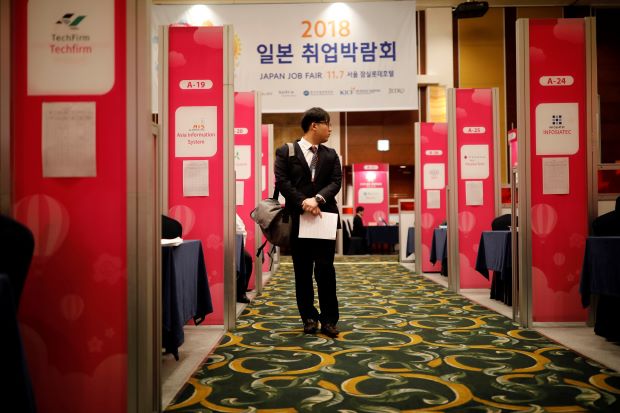Many South Korean youths are having trouble finding jobs locally as Korean companies slash positions and cut back on hiring. As a result, many are singing up for government-sponsored programmes designed to find overseas positions for a growing number of jobless college graduates in Asia’s fourth-largest economy.
State-run programmes such as K-move, aim to connect young Koreans to high-quality jobs in 70 countries. Just last year, the programme found jobs overseas for over 5,000 candidates.
Almost a third of the candidates left for Japan, which is experiencing a historic labour shortage with unemployment at a 26-year low. About a quarter of the candidates went to the United States, where employment has actually been improving greatly recently.
The South Korean programme comes with no strings attached. Similar programmes, such as the ones offered by Singapore, require the candidate to return and work for the state for up to six years. South Korean programme attendees are given no requirements to fulfil.
“Brain drain isn’t the government’s immediate worry. Rather, it’s more urgent to prevent them from sliding into poverty; even if it means pushing them abroad”, said Deputy Dean at the Asian Development Bank Institute, Kim Chul-ju.
In 2018, South Korea generated the smallest number of jobs since the global financial crisis, sitting at around only 97,000. In March 2019, one in every four Koreans in the 15-29 age group was not employed either by choice or due to the lack of jobs, according to government data.
Ironically, with the increasing number of college educated youths leaving the country to seek work overseas, South Korea is bringing in more foreign workers to address another major labour problem: A distinct shortage of blue collar workers.
South Koreans have some of the most highly educated youths in the OECD. However, There are just too few jobs at higher-tiers that can match the skills and talent they offer. “South Korea is paying the price for its overprotection of top-tier jobs and education fervour that produced a flood of people wanting only that small number of top jobs”, said Ban Ga-woon, a labour market researcher at the Korea Research Institute for Vocational Education & Training.
Even amid a glut of over-educated and under-employed graduates, most refuse to “get their hands dirty”, says Lim Chae-wook, who manages a factory making cable trays in Ansan, southwest of Seoul. “Locals simply don’t want this job cause they think it’s degrading, so we’re forced to hire a lot of foreign workers”, he added.
Unless something is done to curb the anxiety of college graduates in Korea, the grim job market at home will continue to drive the skilled youths towards the government programmes every year. As long as these graduates refuse to take on jobs below their skill level, or if more high-tier jobs aren’t open, Korea is expected to bleed more talent every year.























